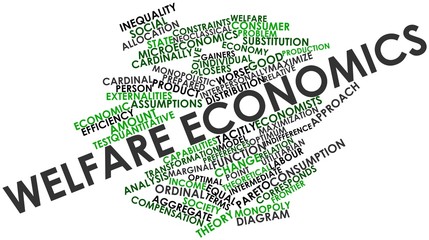What is 'Welfare Economics'
Welfare economics is a branch of economics that focuses on the optimal allocation of resources and goods and how this affects social welfare. Welfare economics analyzes the total good or welfare that is achieve at a current state as well as how it is distributed. This relates to the study of income distribution and how it affects the common good.Welfare economics is a subjective study that may assign units of welfare or utility in order to create models that measure the improvements to individuals based on their personal scales.

No comments:
Post a Comment